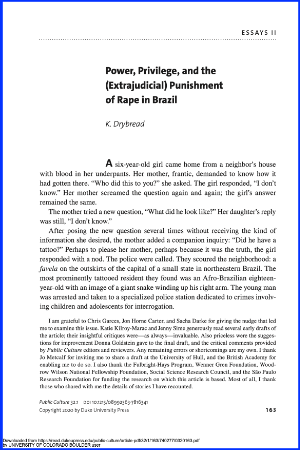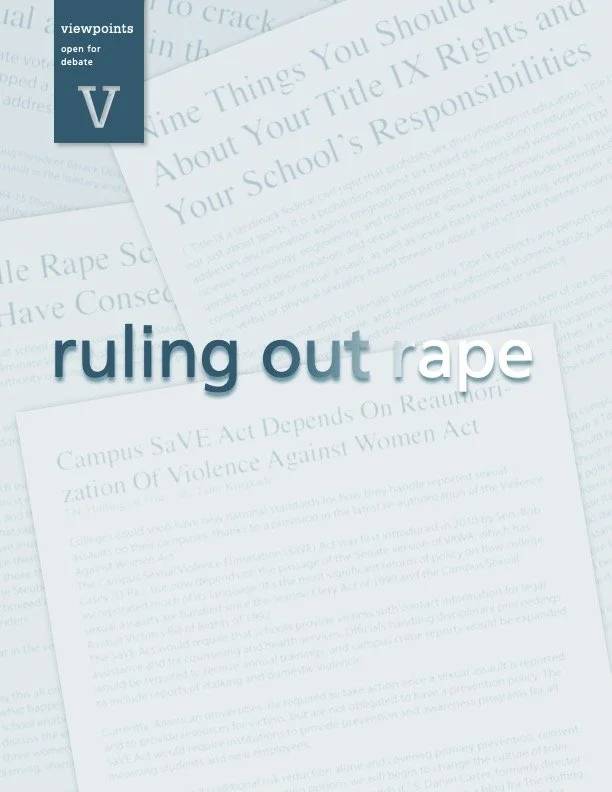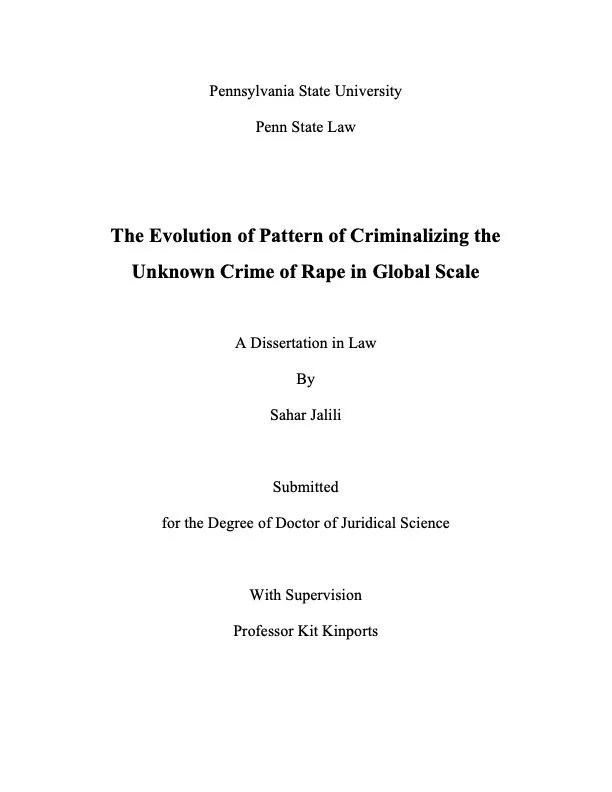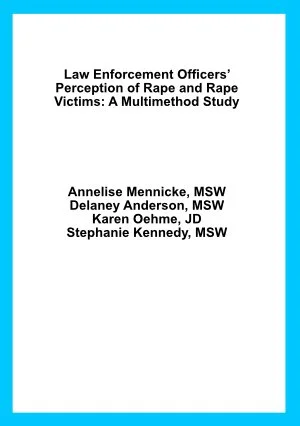By K. Drybread
A six- year- old girl came home from a neighbor’s house with blood in her underpants. Her mother, frantic, demanded to know how it had gotten there. “Who did this to you?” she asked. The girl responded, “I don’t know.” Her mother screamed the question again and again; the girl’s answer remained the same. The mother tried a new question, “What did he look like?” Her daughter’s reply was still, “I don’t know.” After posing the new q
UNIVERSITY OF COLORADO BOULDER user on 27 January 2020, 21p.








